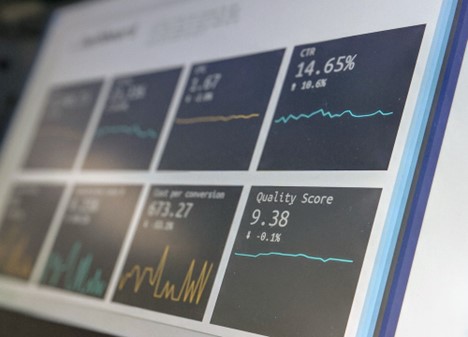In today’s constantly changing business environment, executives and managers are facing new vocabulary and business terms almost every day: “business intelligence, sales forecasts, knowledge management and market research”. That together with the common business sense all manager have or should have plus their business knowledge they have gained during their college years as well as in their daily business activities are new approaches of doing business more efficient and maintain the competitive advantage. But are these words just a newer and better description of what the business world has been dealing with for the past decades, are these new “inventions” from the various business consultants to keep their side of the business growing and their consultant activities flourishing? Or are these really new terms describing the new kind of business approach businesses are facing while dealing with the daily changes, implementation of technology and maintaining a steady and competitive growth in the international business arena?
This paper analyzes the differences between the classical way of doing business by using sales forecasts and market research and comparing it to business intelligence. Further the paper analyzes how business intelligence has changed and will change how businesses plan for their success, design their business strategies, deal with customer satisfaction and adapt to the changing and more demanding customer needs. This paper shows that the concept of business intelligence is a step beyond the classic sales forecasts and market research that businesses had to rely on in the past decades. Business intelligence, if properly applied and utilized, will allow businesses to stay competitive by providing a much faster service and exceeding the expectations of their customers (DMReview, 2006).
Business intelligence (BI) is a business management term, which refers to applications and technologies that are used to gather, provide access to, and analyze data and information about company operations and processes. These business intelligence systems allow companies to have a more comprehensive knowledge of the factors affecting their business, such as metrics on sales, production, internal operations and the external and internal business processes, sales numbers and the Return of Investment (ROI). All this together can help companies to make better business decisions, provide faster and fact or number based statistics which can be used to adjust business strategies to make better business decisions (Wikipedia, 2007). Business intelligence (BI) market and usage is evolving, as companies look to BI solutions in order to address business and sales challenges. Business Intelligence software and system has become a multibillion dollar market in the past years with a tendency to grow even more in the next few years (DMReview, 2006).
At first, corporations and sales managers have spent countless hours analyzing numbers to better understand how well the business was performing, what the current and future market trends are as well as what the next business strategy will look like. Later, companies started to correlate these numbers to actual processes so they could make better decisions about running heir businesses. Today’s successful companies rely more heavily on their business intelligence systems to stay ahead of trends and future events. It is all about analyzing, managing and optimizing business processes in real time – and in conjunction with the underlying and used IT processes – that is being done across the entire enterprise. Business intelligence users are beginning to demand real time business intelligence or near real time analysis relating to their business, particularly in front line operations. They come to expect up to date and fresh information in the same fashion as they monitor stock quotes online or the latest news gets broadcasted. In today’s fast changing markets a monthly and even weekly analysis will not suffice anymore. The data needs to be available and ready to be accessed at a much faster pace to allow businesses and their executives to stay competitive. Charles Nicholls, CEO of a BI Software company, states “Business users don’t want to wait for information. Information needs to be always on and never out of date. This is the way we live our lives today. Why should business intelligence be any different?” (Nicholls, 2004).
Information fuels our economy and plays an essential role in developing and maintaining a sustainable competitive advantage that businesses need in order to survive in the constantly changing business environment. The demands on small, mid-size and large businesses today are increased global competition, lower barriers to entry, lower profit margins and these are creating an ever-increasing need for access to data. The ability and possibility to get the right information to the right people at the right time is, therefore, more important than ever. But providing someone with a large data volume, which is not analyzed properly, not targeted or even not up-to-date or instantaneous, is not going to have the same result as providing business intelligence. Businesses that are successful in collecting, evaluating and applying information are consistently the leaders in their respective industries. The ability to act faster and more effectively than the competition can be the defining advantage in today’s marketplace and the means for successfully managing customer relationships in the long run (DMReview, 2006).
Business intelligence applications and technologies versus market research and sales forecasting allow organizations and businesses to make more informed business decisions. Successful and effective business intelligence (BI) solutions that are comprehensive, secure, and integrated as well as available all day, every day and with instant and updated data is the key to success. These applications and technologies can help companies analyze changing trends in market share, changes in customer behavior and spending patterns, customers’ preferences, company capabilities and market conditions. It also can be used to help analysts and managers determine which adjustments are most likely to affect trends and it can be used to improve the timeliness and quality of information and enable managers to better understand the position of their firm in comparison to its competitors. The main advantage that business intelligence systems have over the classic sales forecast and market research analysis is that they can help companies develop consistent and real-time data and facts based business decisions — producing better results than basing decisions on “guesswork” such as sales forecasting and market research.
Another main advantage of business intelligence system is the fact that these applications can enhance communication among departments, international suppliers, subsidiary offices world-wide, coordinate activities, and enable companies to respond more quickly to changes (e.g., in financial conditions, customer preferences, supply chain operations, etc.) because the systems are usually supported by a data warehouse on which analytical information about these processes resides. When BI systems are well-designed and properly integrated into a company’s decision-making and work process, it may be able to improve a company’s performance. Having access to timely and accurate information is an important resource for a company, which can expedite decision-making and improve customers’ experience. Because in today’s competitive customer-service sector, companies need to have accurate, up-to-date information on customer preferences, so that the company can quickly adapt to their changing demands (Ocampo, 2007).
Prior to the widespread adoption of computer and web applications, when information had to be manually researched, inputted and calculated, performance data was often not available for a long period of time, making it difficult for businesses to maintain the flexibility to adjust to the market and customers needs and therefore maintain the competitive advantage over their competitors. But with all the different features that business intelligence systems are equipped with such as Business Performance Management and Performance Measurement; Business Planning; Business Process Re-engineering; Competitive Analysis and User/End-user Query and Reporting just to name a few are enabling businesses to have access to real time business intelligence. And this Business intelligence can be used to assess the present state of business and to prescribe a course of action the company should take. As business intelligence solutions can be developed to meet market and business specific needs that gather industry sector specific data and analyze large quantities of unstructured data, such as production metrics, sales statistics, attendance reports, and customer attrition figures, businesses come up with more innovative products or services in anticipation of customer’s changing demands.
Not only is the real time data a business has access to a main factor why business intelligence will play a major role in the future, but also the fact that using business intelligence to improve the competitive advantage, provide a better customer service and share information with suppliers are the other major factors that businesses face when making the decision of implementing a business intelligence solution in their enterprise or not. But business intelligence can not only be used for an external analysis of data but also provide managers with in depth knowledge about the internal operations of a business, how to improve response time, manufacturing process or even improve the overall efficiency. And since all the analyzed data is based on facts, numbers and information, it certainly can be and is considered to have a much higher weight than sales forecasts or marketing research. Businesses that want to maintain their competitive edge, improve their work efficiency or support innovative business products, services and strategies, will have to rely on using business intelligence to show them their way to business success. Whether the improved information helps employees and businesses identify operational bottlenecks, re-engineer and improve business processes more effectively or determine root-cause analysis – the results are better decisions, leading to improved financial performance and profitability through cost reduction, cost avoidance or increased sales. Therefore, business intelligence is not a matter of choice – it is a matter of survival.
![]()
![]()





